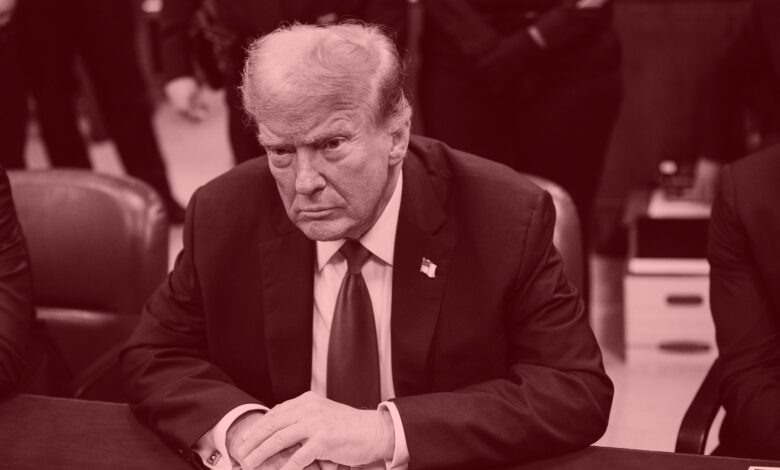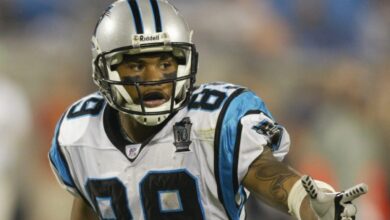Meet CNN’s Legal Eagle With a Bird’s-Eye View of the Trump Trial

When former president Donald Trump struck a two-debate deal with President Joe Biden on Wednesday, the Drudge Report posed a provocative question: “WILL HE BE IN PRISON” by the time the first debate takes place on June 27?
Trump’s hush money cover-up trial will surely be over by then, but, according to CNN’s chief legal correspondent, talk of jail time drastically overstates the stakes. It’s “highly unlikely he’s gonna go to prison. This is a first-time offender,” Paula Reid explained on the latest episode of the Vanity Fair podcast Inside the Hive. “Yes, this is a felony charge, but it’s falsifying business records. It’s highly unlikely that he would be sentenced to any prison time, and even if he was, that is going to be litigated and appealed for quite some time. So anyone saying that, that’s just hyperbole.”
Reid calls herself a “recovering lawyer” and specializes in legal-world reality checks, so here’s another one: A Trump conviction is anything but a certainty. “This case very much rests on the testimony of Michael Cohen, a flawed witness, to put it mildly,” she said. “And it’s just not clear what the jury is going to make of him.”
“If jurors, even one juror, [have] reasonable doubt about Michael Cohen,” Reid added, “this should not be a conviction, and I think it is possible that you could get a hung jury here.”
Reid is based in Washington but has relocated to New York for the duration of the trial. She has been a near-24/7 presence on CNN when court has been in session. It “takes a village,” she said, describing the challenges of covering a trial without the benefit of cameras in the courtroom. CNN’s newsroom ingests a “stream of text messages” from reporters who are in court and summarizing the testimony, she explained. Then it’s up to Reid and her on-air colleagues to put it in context.
That’s where her legal background helps. Reid passed the bar exam twice and worked in a prosecutor’s office in Chester County, Pennsylvania, before pivoting into journalism. Legal fluency helps when “talking to lawyers, talking to sources, asking good questions,” she said.
Reid has been covering Trump legal controversies for the better part of a decade, so she is intimately familiar with the “infighting” and power struggles among past Trump lawyers. “I think the hardest thing with the Trump legal team is there is so much turnover,” Reid explained, but Trump’s current team for the New York hush money trial “is probably the most solid one” he has had overall.
Reid is noticeably well sourced in Trump’s legal orbit. She said his defense lawyers, Todd Blanche and Susan Necheles, are confident about their chances, in part because “it’s a weird case,” with a felony charge for falsifying business records. “A paperwork case for a man who doesn’t leave a paperwork trail is challenging,” she noted. Therefore, the prosecution’s success rests largely on Cohen, who underwent cross-examination on Thursday.
The parade of witnesses has progressed largely as expected for the past few weeks. Given the climate of intimidation that Trump is known for, “the biggest surprise, to me, is that we haven’t lost more jurors,” Reid said. “It’s an incredibly stressful thing to be caught in his crosshairs…So I’m surprised. Maybe it just speaks to the toughness of Manhattanites.”
After watching the jurors remain attentive during “deadly boring” accountant testimony, Reid concluded that they “have accepted the risk” and “understand the gravity of what they have been tasked with.” She added, “I’m pretty sure you could stop any subway car in Manhattan, take the first 18 people—because there’s 12 jurors and then you have the alternates—this would be them. It’s very diverse and just really looks like it represents any dozen or so people on the streets of Manhattan.”



